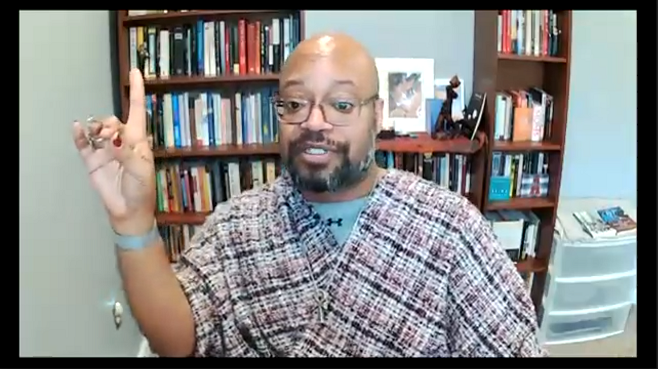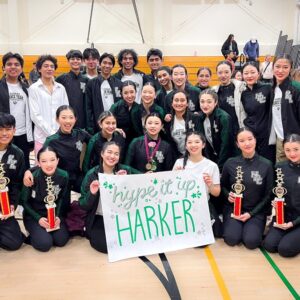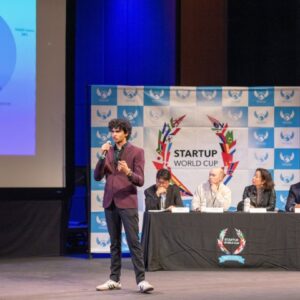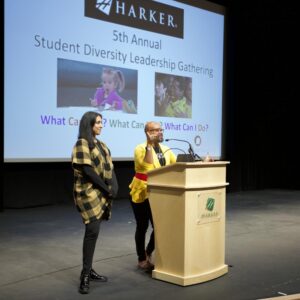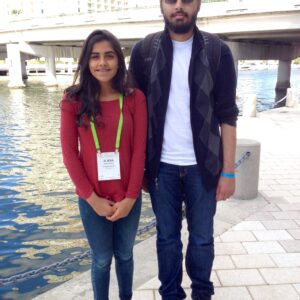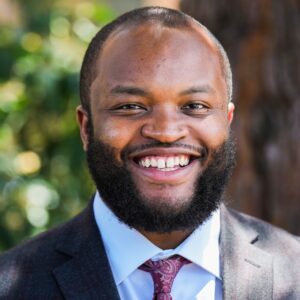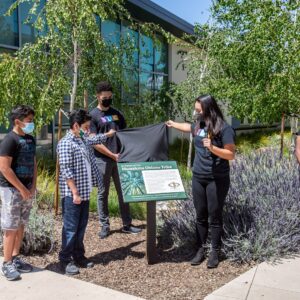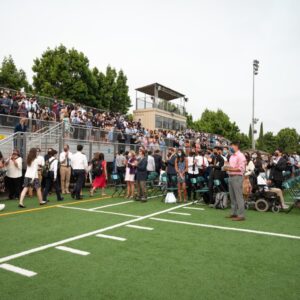On March 13, students and faculty from Bay Area schools attended the Student Diversity Leadership Gathering, hosted by Harker and led by Rodney Glasgow, head of school at Sandy Spring Friends School in, Sandy Spring, Md. A well-regarded speaker and facilitator in the areas of diversity and social justice, Glasgow delivered a keynote at the start of the event, detailing the ways in which his identity as a Black man changes both how the world sees him and how he sees and acts in the world.
He spoke on how the mask he wears as a precaution during the pandemic has hidden what he feels is his best feature, his smile, which he said puts others at ease. When wearing his mask, he said, “No one can really tell who I am. I’m suddenly every Black man at once. They can’t see that I’m a head of school. They can’t see that I’m an Ivy League graduate. They can’t see that I’m smiling. They can’t see that I’m kind. They can only see that I’m Black.”
Glasgow recalled instances in which he found himself centering his identity, such as when he was interviewing for a job and received half-hearted greetings or was grilled with questions in private to verify that he had graduated from Harvard. “This is an identity moment,” he said. This is not actually a Harvard moment. I’m sitting in a Black moment. I’m sitting in a poor moment. I’m sitting in a you’re-too-close moment. I’m sitting in a is-that-a-mask-you’re-wearing moment.”
In one powerful moment, Glasgow told the story of a Black parent who was detained while waiting with his daughter for the bus to arrive outside the school. After seeing the officer pass by once in his vehicle, he told his daughter to be ready, because he sensed the officer would return. “Could you imagine living a life where the police slowly creep by you and you don’t think, ‘thank goodness they’re going on to solve a crime, thank goodness they’re going on to keep the neighborhood safe,’ you’re thinking, ‘let’s just get ready because I think they’re coming back?’” Glasgow said.
Although the situation was resolved, the parent was upset that none of the other parents present during the encounter checked on him or his daughter. “When we unmask identity, all that’s really sitting there in the center is this deep, deep humanity,” Glasgow continued. “It’s this sense of, they didn’t treat me like a person; they didn’t take care of my daughter like she was human. She had to get on the bus and wonder, do they still see me as the person they saw yesterday?”
Following the keynote, adults and student attendees were put into groups to discuss identity and conduct group activities around their feelings on their own identities and how they affect their perceptions of the world. The attendees later met as a group to talk about what they had learned and what elements of the attitudes displayed during the Jan. 6 attack on the Capitol that they saw in their school communities.
